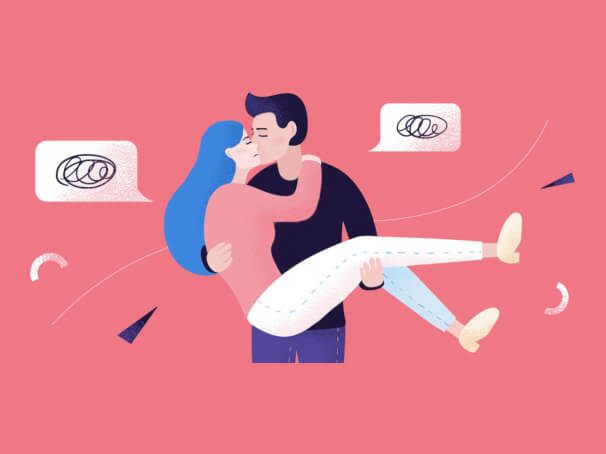
Diabetes and issues with blood sugar are frequently covered in the news. Every day there are numerous reports describe the effects foods and chemicals have on our long term health As such, it's not uncommon for people to worry about how these issues might negatively impact their health and well-being.
As a consequence, many people with anxiety ponder whether they might have hypoglycemia (low blood sugar). Hypoglycemia occurs when there is not enough glucose in the body, starving the brain from necessary resources.
This article explores how anxiety might contribute to symptoms of hypoglycemia and how to help alleviate the symptoms.
Worried About Hypoglycemia? See a Doctor
Your blood sugar is one of the easiest things to diagnose. You can take a simple blood test after fasting for 12 hours and have results in no time. So if you're worried about your blood sugar, talk to your doctor.
Health Causes of Anxiety
Most people that suffer from anxiety worry that it has a physical cause. Although it is necessary to consult a physician in such matters, it is also possible that experience is a result of physical anxiety. In fact, one of the main problems affecting those with anxiety attacks is the constant, nagging feeling that the physical symptoms are too severe to be something as "harmless" as anxiety, and they often look for other explanations for why they may be feeling these symptoms.
First, you need to remember that anxiety causes you to think this way. Anxiety alters thought processes so that "worst case scenario" thinking is more common. In addition, anxiety symptoms can be incredibly severe, and genuinely mimic the symptoms of major health disorders. As much as it may seem hard to believe, your symptoms may not have an overt physical cause, and could simply be a result of anxiety.
But with regard to whether or not hypoglycemia can cause anxiety, the answer is a resounding "Yes." In fact, anxiety is one of the main symptoms of hypoglycemia. Hypoglycemia means that not enough glucose (sugar) is reaching the brain, and this causes the brain a considerable amount of stress, which leads to nervousness and anxiety.
Hunger is Not Hypoglycemia
What you need to realize, however, is that hypoglycemia is fairly rare in those without diabetes. It's caused by problems with insulin medications, excessive alcohol abuse, severe hepatitis, and other health issues that have so many different other symptoms that anxiety is often the least of your worries.
Studies have looked at the relationship between hypoglycemia and panic attacks. A study of 10 panic attack suffers considered with hypoglycemia found that none of them had any signs or symptoms of this condition, especially not before or during the attacks. Another study actually took patients of panic attacks and gave them insulin to induce hypoglycemia, and none of them had an anxiety attack. There is little reason to believe that anxiety and hypoglycemia cause each other in many of those with anxiety disorders.
Most people refer to simple hunger as hypoglycemia, or they refer to it as "low blood sugar." Hunger can cause anxiety symptoms as well. Without enough sugars and nutrients in your blood, your body becomes stressed, and anxiety is often the result. That's why many people find eating a protein bar or getting some food in the body often appears to take the anxiety away.
Low blood sugar in this sense is more likely to make your current anxiety symptoms worse, rather than create anxiety symptoms themselves. In other words, those that find that hunger causes anxiety are far more likely to have already had anxiety which hunger makes worse, rather than developing anxiety on its own.
Nevertheless, when blood sugar is lower in the blood stream in any way, it does appear that it can lead to anxiety.
Reactive Hypoglycemia
There is also a type of hypoglycemia that doesn't yet have a very strict diagnosis. It's known as "reactive hypoglycemia," and it occurs when you experience temporary drops in blood sugar after high carbohydrate meals because your body essentially releases too much insulin in response to those carbohydrates.
Reactive hypoglycemia may lead to a variety of different symptoms that sound very much like those people with anxiety deal with, including:
- Blurry vision
- Panic attack
- Dizziness
- Fatigue
- Lightheadedness
- Headaches
- Heart Palpitations
Nevertheless, before you decide to diagnose yourself with reactive hypoglycemia, you should note that most of those suffering from this type of hypoglycemia still suffer from issues like enzyme deficiencies, diabetes, presence of a gastric bacteria, or a recent surgery. There are also many tests that can be performed for reactive hypoglycemia to rule it out as a contributing factor.
Treatment for Hypoglycemia Induced Anxiety
Making sure you eat regular, healthy meals is often enough if simple hunger/low blood sugar is causing your anxiety symptoms to get worse. Visiting the doctor to rule out more serious problems is also valuable, because it can help ease the voice in the back of your mind that tries to talk you into believing you're suffering from something worse. In the rare event that you have some type of hypoglycemic condition, you can get the appropriate treatment.
But in most of these cases, the problem is still your anxiety. Your anxiety may get worse as a result of low blood sugar, but it would be manageable if you didn't have anxiety to begin with. And never forget that anxiety itself has a tendency to convince people that they have something serious like hypoglycemia.












